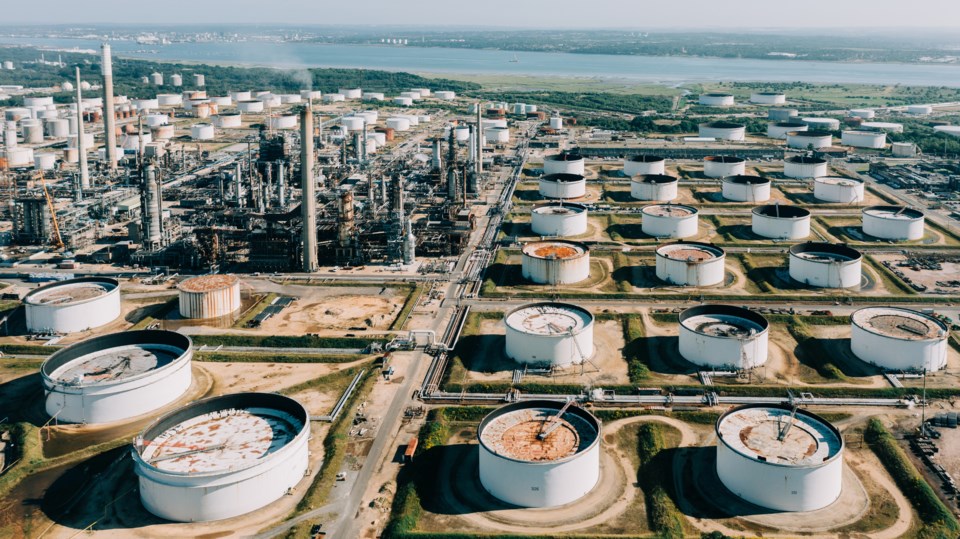OPEC’s announcement that it will slash oil production by two million barrels per day won’t have an immediate impact on the price Prince George motorists will pay to fuel up their vehicles.
But it will take longer for price at the pump to drop to levels seen in September, just before refineries in Alberta, Washington and California went offline or reduced outputs due to breakdowns or scheduled maintenance, according to an oil industry analyst.
“Because refineries have already pushed up prices substantially it won’t mean prices will go up further but what it will mean is prices won’t fall as much because of OPEC’s decision,” said Patrick de Haan, head of petroleum analysis at Gas Buddy. “But as refinery disruptions are dealt with and the refineries get back online on the west coast it will not cause prices to further rise, but it will lead to less of decline than we otherwise would have seen.”
The cartel known as OPEC (Oil Producing and Exporting Countries) met Wednesday and agreed to a two per cent drop in the world market, which produces about 100 million barrels daily. OPEC cited concerns about a weakening global economy, which would mean less demand for oil, as the reason for its decision. That doesn’t sit well with Western governments, including Canada, which were hoping OPEC would continue to flood the market to keep prices lower and reduce Russia’s profits from oil which are being used to pay for its war in Ukraine.
The Russian invasion, combined with reduced refining capacity in the United States which fell to its lowest level since 2014, caused price spikes at the pumps in June that hit record levels in Canada and the U.S. Five American refineries have closed in the past two years due to hurricanes, pandemic impacts, increased production costs or diminished longterm projections as the continent switches to renewable energy sources.
The rules of supply and demand apply and De Haan said capacity issues in U.S. refineries have a direct impact in causing petroleum prices to jump in British Columbia, including Prince George, home of the Tidewater Midstream refinery that produces gasoline and diesel fuel.
“It’s really affecting the entire west coast of Canada and we’ve seen Prince George prices now on the cusp of $2 a litre and the Prairies have been affected by Great Lakes refinery issues,” de Haan said. “There are just so many issues going on right now that are causing prices to go up.
“It doesn’t matter that these refineries are not primarily serving Prince George, but that supply gets diverted elsewhere and that’s the impact. It’s not necessarily the (three to five) refineries that serve Prince George that are having issues , it’s just that the refineries that feed into Prince George can now feed into other areas that need supply as well.
The price for a barrel of West Texas Intermediate oil, which peaked at $123.70 US on March 8 and had dropped to 76.71 US on Sept. 26, shot back up to $88.07 US on Wednesday.
In Prince George prices have risen by as much as 30 cents per litre over the past week, although two filling stations were still selling a litre of gasoline for less than $1.80 as of Wednesday afternoon. The Esso/7-Eleven convenience store at 1588 20th Ave., and the Petro Canada statiions at 1588 Austin Road and 1880 20th Ave. were both at $179.9.
Costco’s price is $1.85.9 and the Esso at 333 15th Ave., is at $1.89.9. Most other stations in the city are charging $1.99.9.
“The good news is there may be some light at the end of the tunnel and starting maybe the weekend or by the end of next week we could see prices starting to go down,” said de Haan. “That’s because refineries are getting back online after having outages over the last two weeks.”


